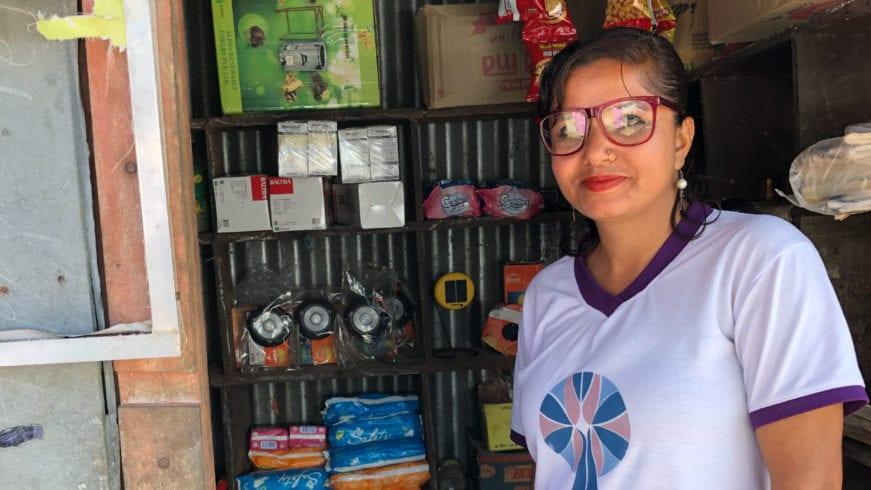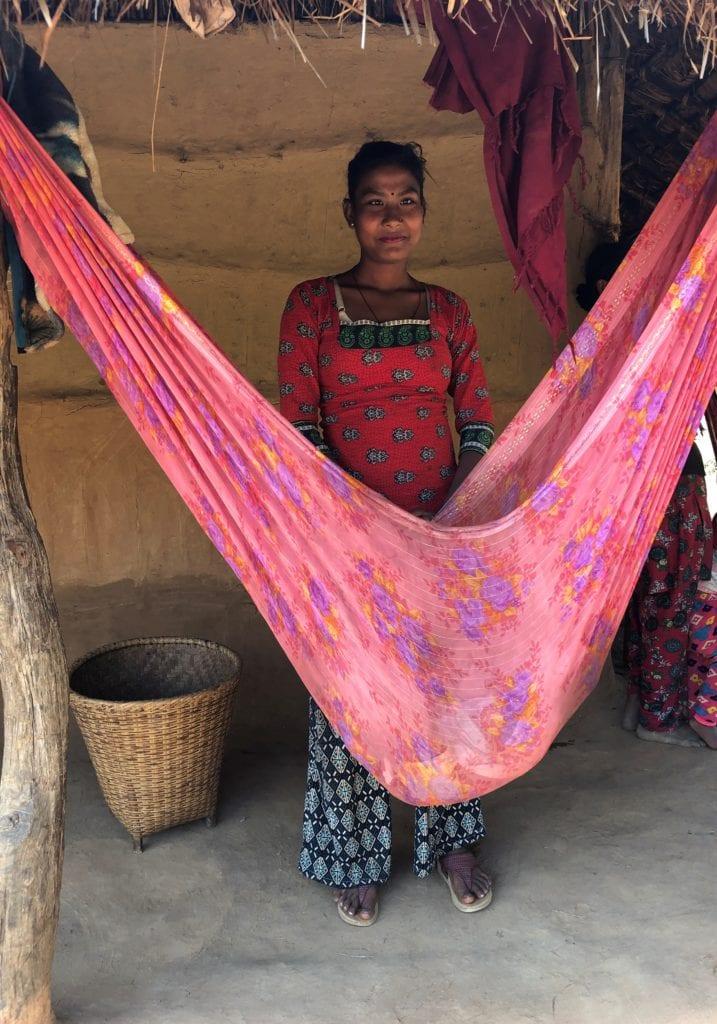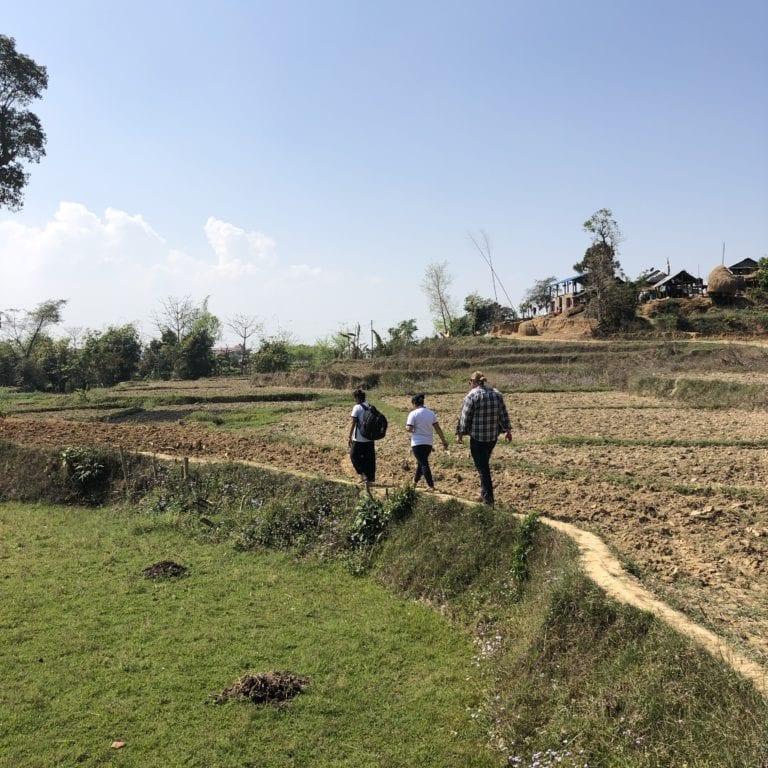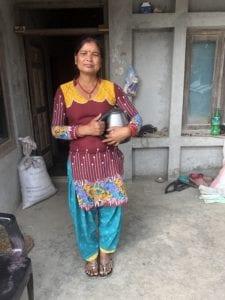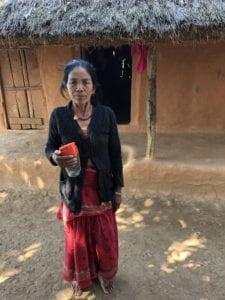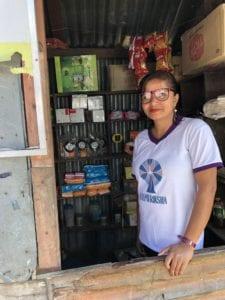Entrepreneurship in Nepal through the Microfranchise Approach
by Claire Kelly, Regional Director for Asia/Pacific
Please read Whole Planet Foundation and Microfinance Partners Respond to the COVID-19 Crisis.
Kalpavriksha is one of the newest social enterprise partners in Whole Planet Foundation's Asia/Pacific portfolio. Kalpavriksha belongs to Pollinate Group and its sister organization, Asha Kiran, operates in India. Whole Planet Foundation typically supports organizations who use financing as a means of supporting entrepreneurship for low income communities. Kalpavriksha’s program adds entrepreneurship training and links to products that improve health, save time and money for rural Nepali women. It’s an innovative, multi-layered program that is sometimes referred to as microfranchising, MicroConsignment, or ‘business in a box’.
The Mission of Pollinate Group
Pollinate Group empowers women as leaders of change to distribute products that improve health, save time, and save money for the world’s most neglected communities. Teams in India and Nepal identify, train and develop entrepreneurs in urban and rural communities to serve their peers. Entrepreneurs earn respect and meaningful income, and become role models who raise awareness about better alternatives. Unlike other last-mile distributors, Pollinate Group’s entrepreneurs can earn up to seven times the informal wage.
With a total of $150,000 from Whole Planet Foundation, Kalpavriksha proposed to scale their network of Suryamukhis (entrepreneurs) from 125 to 400 over three years! However, like other Whole Planet Foundation partners, Kalpavriksha is currently adapting operations in response to COVID-19.
Asset Finance & the Microfranchise Approach
The majority of Whole Planet Foundation’s partners implement a Grameen-style group lending microcredit program. Sometimes our partners distribute productive assets (such as solar lamps or agriculture inputs) on finance, rather than cash loans. For example, please read Zoe So’s blog post about Whole Planet Foundation partner Bidhaa Sasa in Kenya. Microfranchising or “business in a box” is a further variation on asset finance. The general idea is that the Whole Planet Foundation partner provides a business starter kit on credit, rather than a cash loan or asset. At Kalpavriksha, the “business in a box” is a combination of entrepreneurship training and a credit line to access quality household products to sell in their communities. The credit line starts at about $27 and includes a range of small ticket items (such as sanitary pads and LED lightbulbs). The margin from each sale is split between the entrepreneur and Kalpavriksha. In this way, the entrepreneur earns income and Kalpavriksha offsets their operating costs. (Another variation on microfranchising can be found through a solar lamp rental program offered by Whole Planet Foundation partner Jiro-Ve in Madagascar.)
Promoting Entrepreneurship
Nepal is among the least developed countries in the world. Access to reliable electricity and safe cooking practices are particularly challenging in rural areas. Traditional communities also have deep-rooted social attitudes which leads to gender inequality that worsens the impact of poverty on women. However, Kalpavriksha seeks out low income women to join their program as entrepreneurs. Therefore, the first step is a series of trainings to prepare the participants for a sales job. These jobs are not always easy; to make sales some of the Suryamukhis cover a lot of ground, often on foot or by bicycle, carrying backpacks filled with products. The training process serves dual purposes of self-selecting engaged participants and providing practical training.
Kalpavriksha also has an innovative mentorship program where the Suryamukhis can learn from each other. As the entrepreneurs complete trainings and successfully access increasing credit lines, they work with Kalpavriksha to set up their own stationary business. They have the option to join the team as a full-time staff, training and supporting new entrepreneurs.
Promoting access to high quality products
Besides increased income for the Suryamukhis, the end customers benefit by accessing high quality products. These products typically provide value in terms of health, money saving and/or time saving to the customer. For example, a solar lamp allows a household to work, cook and study after sunset. Kalpavriksha sources products in bulk and they strive to either meet or beat the market price. And, because the Suryamukhis travel to their customers, the customers save time and money since they don’t have to travel to the market.
Promoting women’s empowerment & leadership
The co-founder of Kalpavriksha Greater Goods, Sita Adhikari, has spent many years working in community development. Her goal was not only to support additional income for the Suryamukhis, but the company strives to promote women’s empowerment. One of the key measures for doing this is supporting the entrepreneurs to take on community leadership roles. According to the survey in the 2016-2018 Impact report, 79% of the Suryamukhis surveyed said they had taken on additional leadership roles in their communities after joining Kalpavriksha. Nearly all women said they have gained more respect because of operating their own businesses.
Managing with COVID-19
Like other Whole Planet Foundation partners, Kalpavriksha has recently faced some challenges with their primary business model due to local movement restrictions. The local teams are checking in with entrepreneurs regularly via WhatsApp/phone, prioritizing the health and safety of the women, while confirming their location and the status of collections. Pollinate Group has also been listening to the entrepreneur’s needs and, before the lockdown in Nepal prohibited community visits, provided products such as soaps, handwash and masks. Unfortunately, they have encountered some inflated prices when sourcing some critical items. As a result, Pollinate Group is not taking a margin at all in these transactions.
Besides looking after the team and adjusting their immediate product offering, Pollinate Group and Kalpavriksha are leveraging the trust and relationships built in these communities over time to be a two-way source of information during the crisis. For example, both parties are sharing reliable information about the virus and symptoms, as well as health and WASH (water, sanitation, and hygiene) information.
The skills the Suryamukhis have gained are translating to helping their communities in crisis. When Suryamukhi Radha found out two young men who had returned from abroad were unwell in her community, she reached out to them and explained why it was necessary for them to see a doctor. She explained that if it was COVID-19, they would be treated and not spread the disease. The young men tested negative, thankfully, but it is a great example of Suryamukhis spreading awareness, even though they cannot visit homes to sell products.
You can read a full debrief about the Pollinate Group’s response to the COVID-19 pandemic.
“Our goal is to continue to serve the hardest to reach communities, to continue addressing the inequality gap that is intensified by COVID-19, and create impact in a way that is safe and makes sense in this climate. We are ensuring our entrepreneurs are continually supported during this time, while also ensuring our business continuity – that is, we are here for the long haul and look forward to delivering services with our entrepreneurs in the communities, as soon as this is behind us,” says Pollinate Group CEO Sujatha Ramani.
Visit our Whole Planet Foundation website to learn more about our network of microfinance partners alleviating poverty around the globe.

